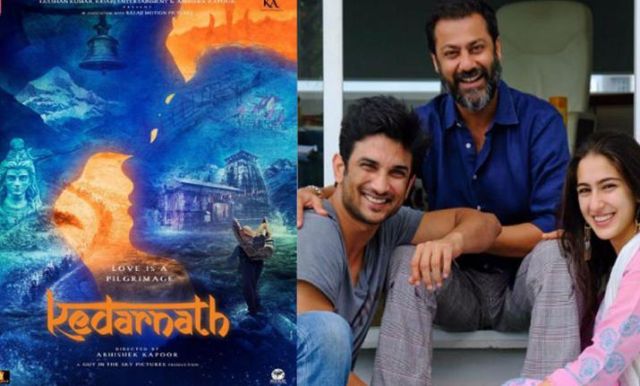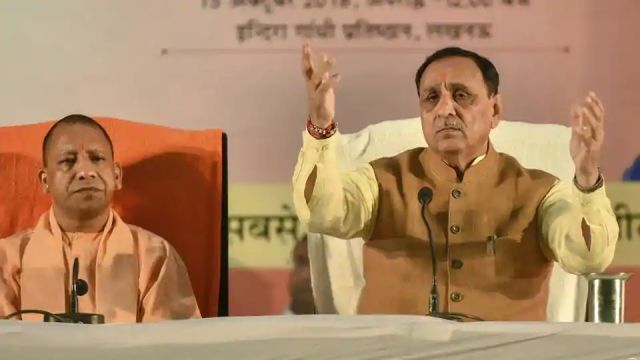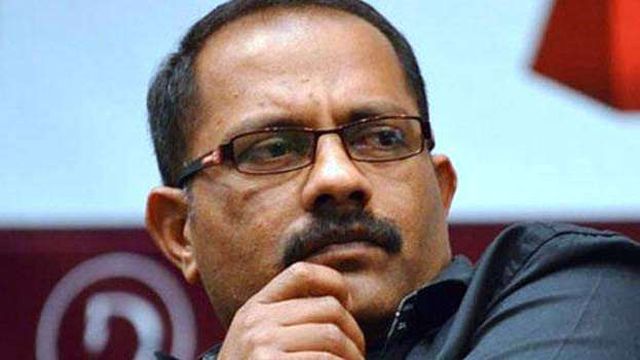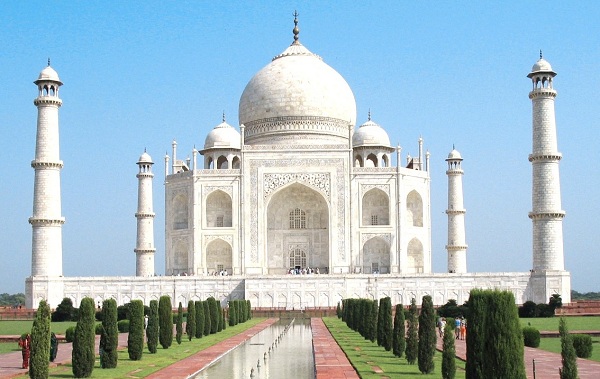
by admin | May 25, 2021 | Interviews
 By Nivedita,
By Nivedita,
New Delhi : Seeing a Muslim porter carrying a Hindu pilgrim on his back — something that speaks a lot about India as a country — left a seed in Abhishek Kapoor’s heart and mind to tell a tale of “harmony” with his forthcoming Hindi film “Kedarnath”.
A firm believer of Lord Shiva, Kapoor has urged those opposing “Kedarnath” to have patience and faith in him. Reacting to the ‘Love Jihad’ controversy that the film has been caught up in over the romance between the lead characters — a Hindu girl and a Muslim boy — he says the movie is his “pure attempt to create harmony and more understanding”.
A BJP leader had sought a ban on “Kedarnath” for promoting ‘Love Jihad’.
Was he prepared to face such concerns while he was shooting the film?
Kapoor told IANS during a tete-a-tete in the capital: “You do consider stuff like that can happen, but the idea is not to titillate them (movie-goers) in a certain sense or the idea is not to create a controversy. This film is genuinely a very pure attempt to create harmony and more understanding amongst ourselves.”
However, he feels that if someone is going to find faults and tries to take advantage of the situation, he can’t help it.
“One’s attempt is to do something (with a film) that has not been done before and you have to have some courage. To answer all those people out there who are skeptical, they should know that there is nothing that they should worry about. We have not made a film that will offend anyone. If at all, they will see each other with more understanding and more love.
“I would request them to have patience, to have faith in me because the way they love Hindu religion and want to protect it, I also want to do the same. I am also a follower of Lord Shiva and love Hindu religion like anyone else. Hence, I won’t do anything that will disappoint people,” Kapoor said.
Written, directed and co-produced by Kapoor, the film tells the story of a Hindu girl who takes a pilgrimage to the historic Kedarnath Temple in the Uttarakhand mountains, where she meets and falls in love with a Muslim boy who becomes her guide.
As they grow closer along the journey, they face many obstacles, including familial disapproval and contrasting backgrounds. When the sudden rains of the 2013 Uttarakhand floods devastate the region, the couple are forced to survive against the elements and face the ultimate test of their love.
It’s not just the ‘Love Jihad’ controversy that the film has run into as the project has overcome many hiccups in its making. It was salvaged after Ronnie Screwvala took over the film from former producers Prernaa Arora, Bhushan Kumar and Ekta Kapoor.
In hindsight, Kapoor said: “There was fear and to put it lightly, they (the ones who were making it before) were just not qualified to run the show with me. They sounded pretty good in the beginning but in the longer run, I realised that they were not qualified for it.
“A movie has so many careers and so many lives at stake and once I am the owner of this film and I have brought the partner, I have to detach from them and secure my film. Tomorrow whatever the fate the movie will be — whether it is a hit or a flop, people will like it or dislike it, but as a filmmaker and as a person who is going to carry this burden, my duty is to secure the film to the end.”
Releasing on December 7, “Kedarnath” will launch Sara Ali Khan, the daughter of actor Saif Ali Khan and his former wife Amrita Singh. She has been paired with actor Sushant Singh Rajput.
Kapoor hopes the film brings “healing”.
“The intent is pure. The story is true and the characters and the actors have performed really well as I see it. The audience will decide what they have to decide but my conviction is pure,” he said.
Was Sara always in mind for this film?
“I never actually look at the cast before I have the story in place. The story did emerge first. As a kid, I used to go to Vaishno Devi very often and I didn’t have that much of faith then. So after my last movie, I had a trip there. On one such trips, to see a Muslim porter carrying a Hindu pilgrim on his back, was a vision. If you look at it and see what it stands for, it tells you what this country is all about.” Kapoor said.
(Nivedita can be contacted at nivedita.s@ians.in)
—IANS

by admin | May 25, 2021 | Entrepreneurship, Islamic Finance, News, Social Entrepreneur
 By Mohammed Shafeeq,
By Mohammed Shafeeq,
Hyderabad : There is no dearth of generous people in society who want to do something for the less fortunate, but their help often doesn’t reach the needy or gets misappropriated. To make charity a satisfying experience that brings the intended results to both benefactor and beneficiary, a Hyderabad-based group, Safa Baitul Maal, is showing the way by creating and using data to link the rich with the poor and needy.
Every month, this educational, welfare and charitable trust spends Rs 70-80 lakh on its charitable activities in different states. Set up by Moulana Gayas Ahmed Rashadi in 2006, the organisation has 70 branches in Telangana, Andhra Pradesh, Karnataka, Maharashtra, Assam, Jharkhand, Uttar Pradesh, Odisha and Madhya Pradesh.
Headed by a group of five “ulemas” or religious scholars, Safa Baitul Maal has a 450-strong staff who are paid salaries. “We make sure that the aid by the rich reach those who are genuinely needy,” Moulana Rashadi told IANS.
He is also trying to bring ulemas into the field of charity. The organisation is roping in the imams of mosques in its activities. “The imam of a mosque is not just the head of that mosque but he is the head of the people of his area, irrespective of their religion,” he said.
Every day the organisation’s call centre in Hyderabad receives 400-500 calls, both from those who are in need of help and those who want to donate. The organisation ensures transparency in such a way that every donor can get all the details of how his money was spent and the names and contact numbers of the beneficiaries.
“Whoever approaches us seeking help has to provide all the details and we send our people to cross-check the information provided by the applicant,” said M.A. Muqtadir Imran, in-charge of the Safa’s branches.
Based on the findings of the survey, the applicants are issued white, yellow or pink cards, enabling them to receive aid in varying degrees.
Safa Baitul Maal receives ‘Zakat’, ‘Fitra’, ‘Sadqa’ and other charities and donations from the people. However, collection of house-hold scrap is its biggest source of income. On an average, it receives 100 calls to pick up old items from houses in Hyderabad.
The group runs 12 vehicles to pick up the scrap and shift it to its workshop. Some items, which are in good condition, are repaired and sold at its unit at Bandlaguda at affordable prices to mobilise funds. The organisation earns Rs 18-19 lakh from scrap and the money is ploughed back into charity activities.
In Hyderabad alone, the organisation is sponsoring the education of 150 orphans, spending Rs 2,000 on each child per month on school fees and food. A representative visits the schools to monitor their academic progress. The children are provided free uniforms and books.
In addition, Rs 1,000 is deposited every month for every student in a mutual fund to take care of their higher education. Half of this money is contributed by another organisation, the Saleha Rasheed Trust.
A similar number of widows are provided assistance of Rs 1,000 each while the physically and mentally handicapped are given Rs 1,000 to Rs 2,000.
In poor and backward neighbourhoods like Kishan Bagh and Baba Nagar, Safa conducted surveys to identify orphans, widows, the handicapped and others who are really in need of help.
Every day, the organisation conducts medical camps in 26 identified slums in Hyderabad, covering one slum every day. The beneficiaries are examined by a team and are given free medicines. The white card holders are also eligible for free tests in a diagnostic centre run by Safa. It also runs three healthcare centres. The trust spends Rs 8 lakh every month on health activities.
The organisation has a unique system for providing assistance for marriages. Safa extends help on condition that the marriages should be performed on its date, with its expenses and at its venue. “We spend Rs 50,000 to Rs 60,000 on each marriage, providing the couple with furniture and house-hold items,” Imran said.
Safa runs 10 tailoring centres, which train over 1,000 women. It invites fashion designers to train the faculty. A manufacturing centre set up by the state government’s Minorities Welfare Department and administered by Safa trains dozens of women with 40 machines.
Safa also provides microfinance through interest-free loans to small businessmen. Vendors take Rs 3,000 a week as loan and they are allowed to repay in six weeks. Those prompt in repayment are extended higher assistance.
In the holy month of Ramadan, Safa distributes 25,000 ration packets worth 50 lakh among the needy. It also distributes packets on Eid.
On Eid-ul-Azha, Safa organises the sacrifice of cattle in 600 villages across different states to ensure that the poor and the needy get meat.
As lot of food is wasted in Information Technology companies every day, Safa recently tied up with couple of MNCs to collect food, pack it and distribute it among the hungry.
Digging of borewells, distribution of sewing machines among women, education kits to poor students, arrangement to provide drinking water at few government-run hospitals during summer, distribution of blankets among madarsa students and those living on footpaths, construction of mosques in villages and summer camps for students are some of the other activities of Safa.
Organisations like Hyderabad Zakat and Charitable Trust (HZCT) and Helping Hand are also tying up with Safa Baitul Maal to provide assistance to the needy.
Rahman Foundation run by eminent religious scholar Moulana Sajjad Naomani in Uttar Pradesh sent its staff to Safa for training. Assam MP Badruddin Ajmal, along with a team from his Ajmal Foundation, also visited Safa to study its unique functioning.
(The weekly feature series is part of a positive-journalism project of IANS and the Frank Islam Foundation. Mohammed Shafeeq can be contacted at m.shafeeq@ians.in )
—IANS

by admin | May 25, 2021 | News, Politics
 Ahmedabad : Gujarat Chief Minister Vijay Rupani has re-opened the issue of renaming Ahmedabad as ‘Karnavati’, days after his Uttar Pradesh counterpart Yogi Adityanath renamed Allahabad as Prayagraj and mooted the idea of changing Faizabad to Ayodhya.
Ahmedabad : Gujarat Chief Minister Vijay Rupani has re-opened the issue of renaming Ahmedabad as ‘Karnavati’, days after his Uttar Pradesh counterpart Yogi Adityanath renamed Allahabad as Prayagraj and mooted the idea of changing Faizabad to Ayodhya.
Soon after offering ‘darshan’ at the Bhadkrakali Temple on the Hindu new year on Thursday, Rupani said his government was committed to rename Ahmedabad as Karnavati. The task would be accomplished and the renaming would happen before the 2019 parliamentary elections.
The Chief Minister said all legal hurdles would be tackled for this purpose as “millions of Hindus in Ahmedabad and most parts of Gujarat wished” that the city was renamed as Karnavati.
The BJP has been using this name in all its official functions, events and publicity paraphernalia.
“My government is committed to the cause and we will ensure the the process is completed ahead of the Lok Sabha elections,” he told reporters.
In 2002 the Atal Bihari Vajpayee government with party veteran L.K. Advani as the Union Home Minister had rejected a 1990 proposal of the then BJP-ruled Ahmedabad Municipal Corporation to rename Ahmedabad as Karnavati.
Later, the subsequent Congress-ruled local civic body overturned the proposal and retained the original name.
The Gujarat Congress asserted that Rupani’s idea to re-open the renaming issue was provoked by political motivation.
“The Ahmedabad Municipal Corporation is under the BJP without a break for the last 13 years, the State Government for more than two decades and the Centre for the last four and a half years.
“Why was this not initiated all these years and being brought up again, just when the Lok Sabha elections are around the corner?” former state Congress president Arjun Modhvadia asked.
He asserted that the ruling BJP wanted to distract the distract public attention from the failures of the Modi government across all spheres and keep people bogged down in non-issues.
The BJP, meanwhile, stated that “Karnavati” was Ahmedabad’s original ancient after King Karnadev who had set up his kingdom here in 12th century. Ahmed Shah had conquered it in 1411 and the city was renamed after him as Ahmedabad.
A party spokesperson said, “The people of Ahmedabad have already embraced Karnavati, it is only a matter of legal process to be completed. It should be noted that this has nothing to do with the 2019 elections.”
—IANS

by admin | May 25, 2021 | News, Politics

K.M. Shaji
Kochi : In a setback to the Congress-led UDF, K.M. Shaji, an MLA from the IUML, was disqualified on Friday by the Kerala High Court for violating the election code of conduct for making communal overtures in his election campaign.
Shaji, who was declared ineligible to contest an election for six years, said he would move the High Court again and then the Supreme Court.
Justice P.D. Rajan delivered the verdict on a petition filed by journalist-turned-CPI-M candidate M.V. Nikesh Kumar, who finished second in the election.
Shaji retained the Azhikode constituency in Kannur district in a bitterly fought battle by a margin of 2,462 votes. The Indian Union Muslim League (IUML) is the second biggest constituent in the UDF.
The court also asked Shaji to pay Rs 50,000 as cost to the petitioner but did not declare Kumar the winner from Azhikode. It instead asked for a fresh election.
Shaji told the media that the verdict was a big blot to his secular credentials.
“I am deeply pained that the court has termed me communal, which I never am. I was one who boldly told on the eve of polling day that I do not want a single vote from communal parties. Once I reach Kochi, I will decide the legal steps I will be taking,” he said.
Kumar said he saw the verdict as a political victory.
—IANS

by admin | May 25, 2021 | News, Politics
 By Shuriah Niazi,
By Shuriah Niazi,
New Delhi: Muslims in Indian city of Agra would no longer be able to offer prayers at the mosque situated on the premises of landmark Taj Mahal except on Fridays.
According to the directives issued by the Archaeological Survey of India, Muslims will be allowed to offer prayers at the Taj Mahal mosque only on Fridays.
The decision was taken in accordance with the order of the Supreme Court of India, Vasant Swarankar, superintending archaeologist at ASI’s Agra chapter, told the Times of India, a local daily.
“Namaz (prayer) can only be offered on Fridays and that, too, by local residents only,” Swarankar said.
Syed Ibrahim Hussain Zaidi, president of the mosque’s management committee, termed the decision as an “anti-Muslim” move.
“This show their mindset. The order is illegal and you cannot prohibit residents from offering prayers on other days,” Zaidi told Anadolu Agency.
Earlier in July, The Supreme Court of India had refused to allow prayers by outsiders at the mosque on the premises of the Taj Mahal, saying the monument’s preservation is paramount.
The court has said that the Taj Mahal is one of the seven wonders of the world and people have several other mosques to offer their prayers.
The Taj Mahal is a 16th century marble mausoleum built by the Mughal emperor Shah Jahan in memory of his wife. Thousands of people visit Agra every year to see the famous Taj Mahal.
The mosque there remains closed on Fridays for the general public. The locals are allowed to offer prayer at the mosque between noon and 2 pm on Fridays after showing identity proof.
—AA





